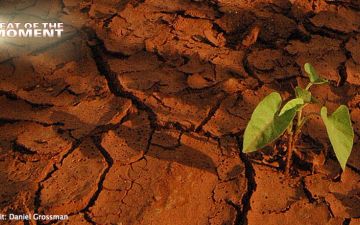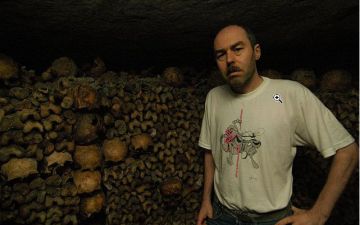Planet Earth's average temperature has risen about one degree Fahrenheit in the last fifty years. By the end of this century it will be several degrees higher, according to the latest climate research. But global warming is doing more than simply making things a little warmer. It's changing rainfall, causing heat waves and making sea level rise, all of which create real human suffering.
Daniel reported from France, South America, Mongolia, southern Africa, Bangladesh and India, exploring how global warming is already influencing the lives of people around the world.
Daniel Grossman's reporting was supported by the Kendeda Fund, Alicia Patterson Journalism Foundation; Barbara Smith Fund; Whole Systems Foundation; Abby Rockefeller & Lee Halprin and 7th Generation Incorporated.


